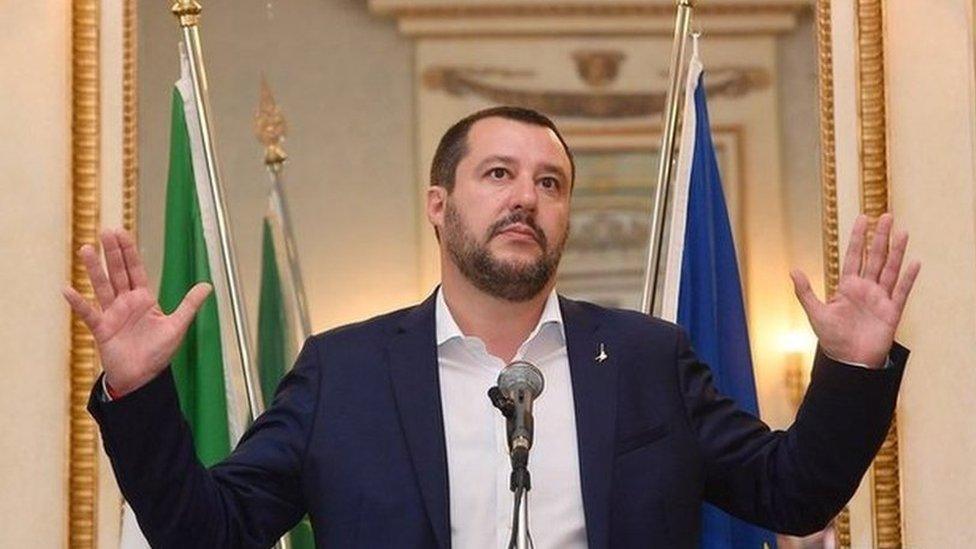Eight EU nations agree migrants deal, France says
- Published
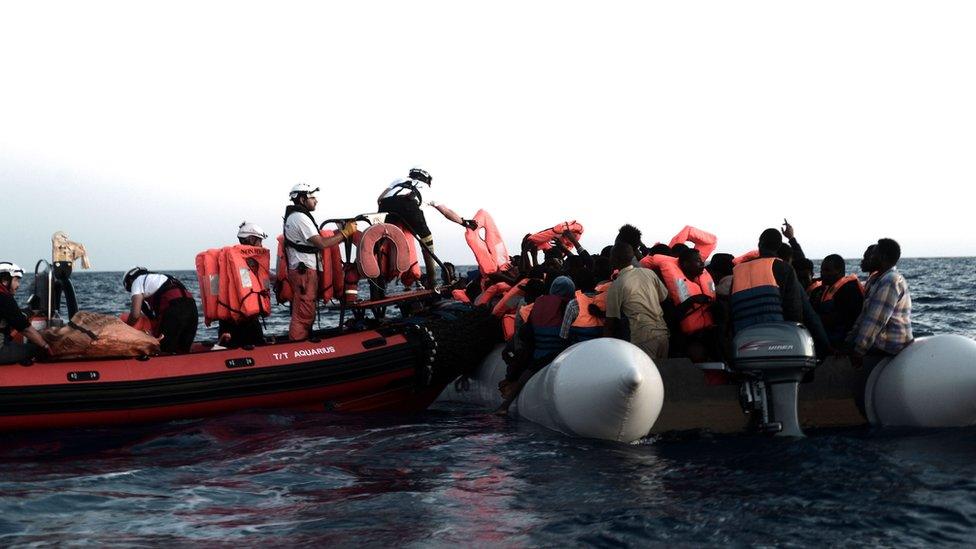
Migrants making the journey often travel in poorly maintained and overcrowded vessels
France says eight EU countries have agreed to share the resettlement of migrants rescued in the Mediterranean - but Italy is not one of them.
President Emmanuel Macron says another six nations backed in principle a Franco-German plan at talks in Paris.
He says he will not agree to releasing EU structural funds to countries that refuse to share the burden.
Italy, which has been at the forefront of the migrant influx in the EU, snubbed the talks.
Italian Interior Minister Matteo Salvini, who leads the right-wing League party, has spearheaded the country's hardline stance toward migration.
Thousands of migrants attempt to cross the Mediterranean to Europe every year, and Libya is a key departure point. Those who make the journey often travel in poorly maintained and overcrowded vessels, and many have died.
But since mid-2017, the number of migrant journeys has declined dramatically largely due to efforts by Italy and other EU countries to encourage Libya to stop migrants from crossing the Mediterranean - a policy condemned by human rights organisations.
What did President Macron say?
Speaking after Monday's talks attended by EU interior and foreign ministers, Mr Macron said: "The conclusion of this morning's meeting is that 14 member states have given their approval to the Franco-German document.
"Of those 14, eight have enacted their co-operation, and their participation in the stable mechanism which would allow the commissioner to act on requests and the response of the eight member states in the necessary spirit of solidarity."
Mr Macron provided no details of the agreed deal.
The eight countries are Croatia, Finland, France, Germany, Ireland, Lithuania, Luxembourg and Portugal.
The six EU nations that have backed the deal in principle have not been named.
Women and children are being held in camps close to fierce fighting in Libya
At the same time, President Macron said he would be against releasing EU funds to those nations that refused to co-operate.
"Europe can't be à la carte when it comes down to solidarity. We can't have states which say 'We don't want any of your Europe when it's about sharing the burden but we do when it's about structural funds'.
"That won't last, or in any case I won't sign off on financial provisions which go in that direction," Mr Macron said.
His comments are seen as a clear warning to Hungary and Poland, whose governments have adopted hardline policies on migrants.
What about Italy's reaction?
Mr Salvini did not take part in the Paris talks.
In a tweet (in Italian), , externalhe wrote that "Italy does not take orders", adding that if Mr Macron wanted to discuss the migrants issue he should come to Rome.
Allow X content?
This article contains content provided by X. We ask for your permission before anything is loaded, as they may be using cookies and other technologies. You may want to read X’s cookie policy, external and privacy policy, external before accepting. To view this content choose ‘accept and continue’.
Earlier this month, Italy officially shut down a migrant centre on the Italian island of Sicily which had been one of the largest of its kind in Europe. has been officially shut down.
Mr Salvini attended the closure of the Mineo centre, which at its peak housed more than 4,000 people.
- Published21 July 2019
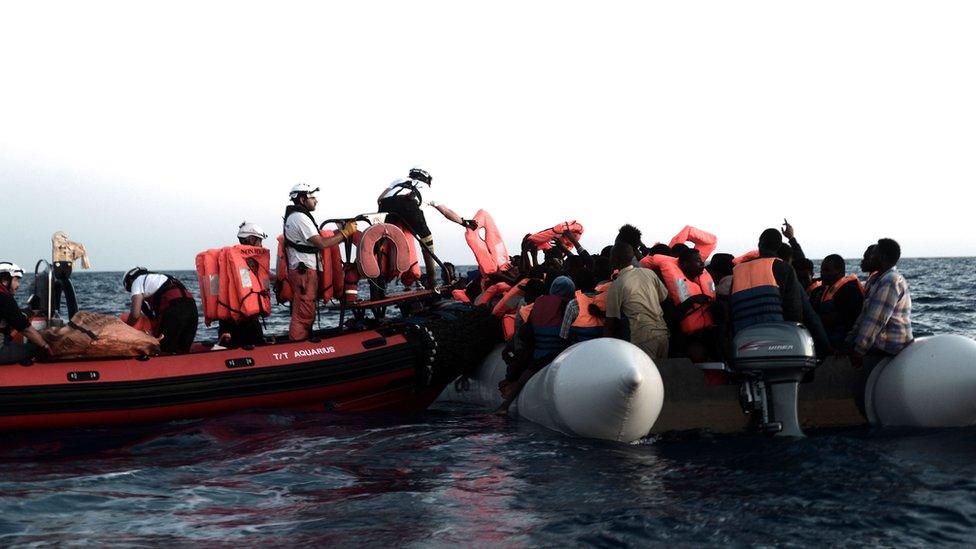
- Published9 July 2019
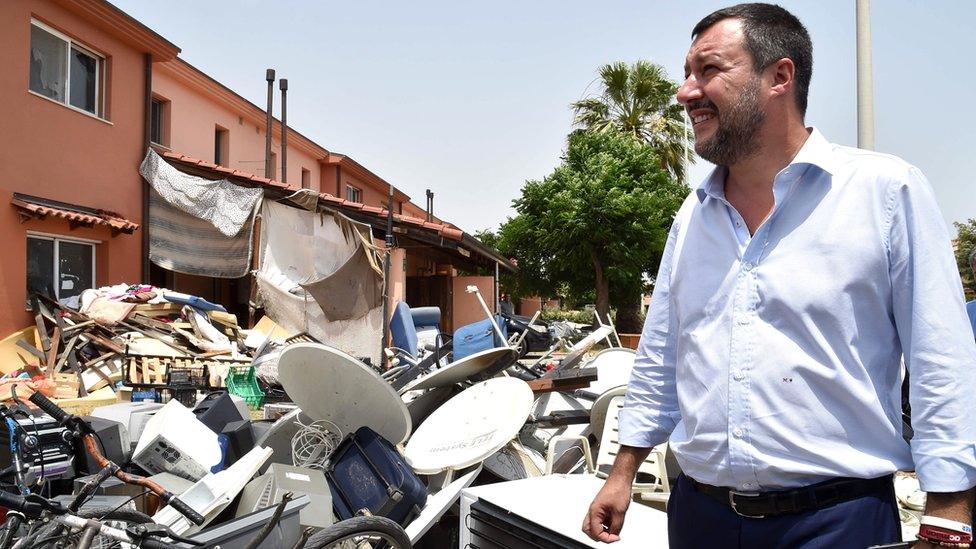
- Published1 July 2019
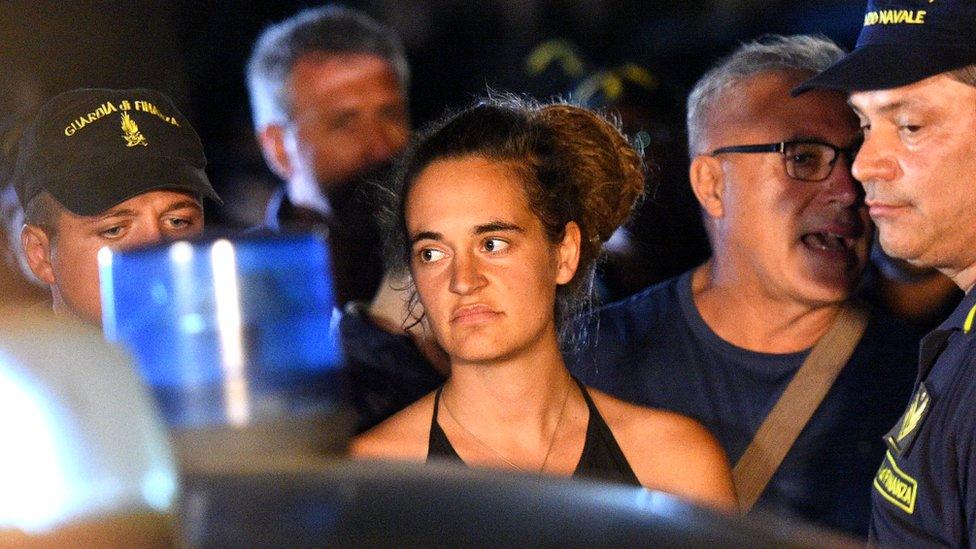
- Published26 February 2020
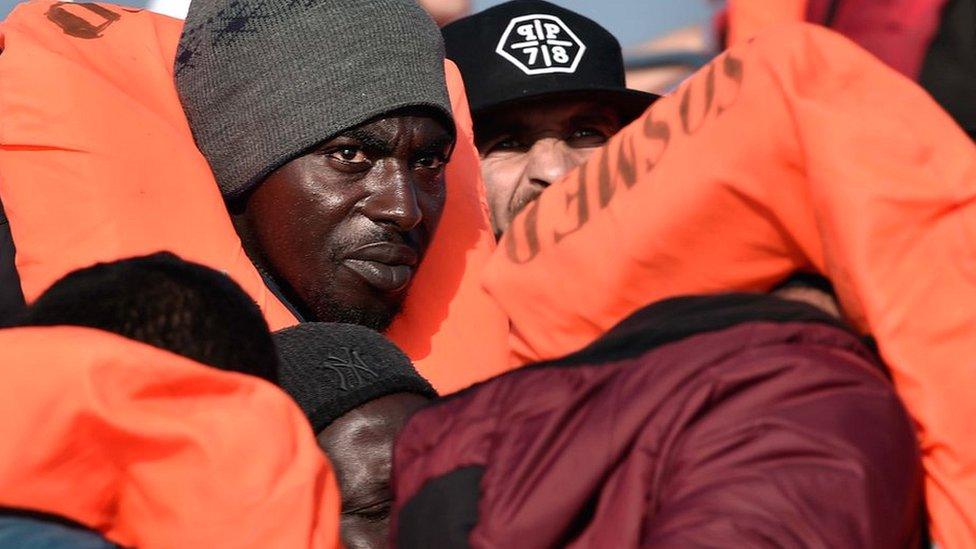
- Published24 September 2019
